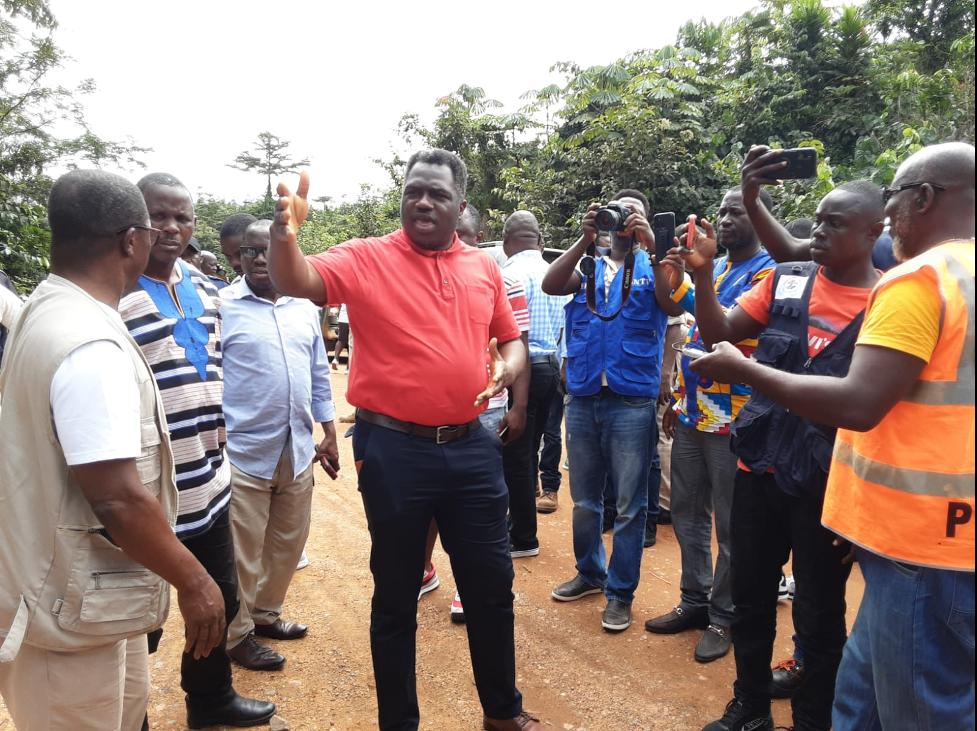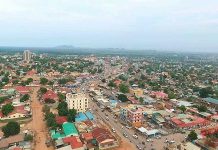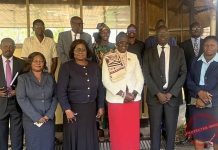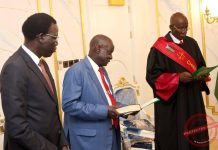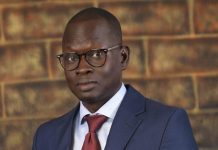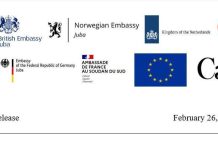Africa-Press – South-Sudan. When the government of Liberia signed a groundbreaking concession agreement with world steel giant, ArcelorMittal back in 2005, all Liberians, especially the affected counties had hope that the deal would resuscitate the crumbled economy, boost infrastructure development and improve their standard of living. However, more than 16 years later, Liberians, mostly the locals and their leaders, are still hoping, and it appears the wait will be endless.
“I have seen that nothing has changed. But I can say to you that I am not impressed because this is just the same old building, no addition and no subtraction for almost 75 to 80 years… Especially when we get the world’s biggest steel giant. It doesn’t look good; it doesn’t represent the kind of investment we have in this country,” said Senator Jeremiah Kpang Koung addressing the company’s junior officials and medical doctors at the Yekepa Hospital over the weekend. The hospital, one of Liberia’s best pre-war medical facilities, boosted 100 bed, but has now reduced to 60 under the supervision of ArceloMittal.
On Friday, Senator Koung led a five-member legislative caucus’ fact finding mission to the company’s concession area in Nimba County. The tour comes as as the company and the government are on the verge of completing the signing of a new concession agreement in the tune of US$800 million. The Executive led by President George Weah has already giving its blessings to the new deal following a recent signing ceremony graced by the President and the company’s Chairman and CEO, Indian-born billionaire Lakshmi Mittal. Both trumpeted the new deal will create job and improve the country’s troubled economy.
To complete and legalize the agreement as called for by law, the President will now forward it to the Legislature for ratification. Ahead of that process, the lawmakers, who are currently on their Legislative break, visited the area, toured the company’s facilities and held series of town hall meetings with residents of the affected communities all aimed at getting first-hand information about the company’s operations and its implementation of the first Mineral Development Agreement (MDA).
The first MDA calls for the company to carry out mining operations at the Yekepa, Nimba County and Buchanan, Grand Bassa County concessions. This agreement was then renegotiated and amended in 2006.
The MDA carries stringent conditions regarding sustainable development and economic, social and environmental investment. Its aimed to ensure that, while foreign companies are able to generate a profit from their investment in the extraction of Liberia’s resources, the country and its citizens benefit as well.
Among other things, it stipulates that ArcelorMittal contribute US$3 million a year to the county social development fund for Nimba, Bong and Grand Bassa Counties. This money, which over the 25-year expected life-of-mine will total $75 million, will be used to drive community development projects that will uplift and improve the lives of local people.
However, residents say they are yet to fully benefit from the company’s operations. “There is no safe drinking water in our town. We don’t have any employment opportunity. We are living in total hardship,” laments Gabriel Dunbar Gbanlon, former Commissioner and now spokesperson of Sehyikimpa, in Saniquellie Mah District.
At a town hall meeting with the lawmakers, Mr. Gbanlon said the future of the town is bleak, as no learning opportunities for the children and young people. He said students from the town highly make a pass at the company’s vocational school, insinuating that the company deliberately deny the students and leaving them with no opportunity to learn any skill. With no skills, there will be no opportunity to work, he said.
“We called on you to intervene, and let our children go to school. That’s the only hope,” he pleaded with the lawmakers.
In Zolowee, the narratives were the same. “We don’t have clinic in our town. When we get sick, we go to Sanniquellie. For pregnant women to deliver safely, they have to go Sanniquellie. We are living in hell,” Patricia Wantoe, in her mid-30s told FrontPage Africa.
“There is no road. Life is difficult for us here. We expected things to be better for us. But since ArcelorMittal came, noting good is happening for us. Let our lawmakers talk for us. We are suffering,” added Ruth Zoyah.
On behalf of the townspeople, J. Madison Zowehyee told the lawmakers in a mass gathering that the company has refused to employ residents of the area. “We have been left out in everything; even the unskilled job,” Zowehyee said, as the lawmakers listened attentively.
Senator Koung was joined on the trip by his colleagues including Representatives Prince O.S. Tokpah (District #2), Gonpue L. Kargon (District #3), Dorwohn Twain Gleekia (District #6) and Roger S.W.Y. Domah (District#7). They, on separate occasions assured the citizens they would engage their colleagues on Capitol Hill to ensure the company live up to its corporate social responsibilities.
‘Company of Containers’
Following the signing of the first MDA, ArcelorMittal inherited the structures including the housing facilities, rail, work stations and hospital left by the Liberian-American-Swedish Mining Company (LAMCO), a defunct Liberian corporation that mined the iron ore in the Nimba range from the 1960s up to the outbreak of the civil war in 1989.
The agreement also includes commitments to improve and rehabilitate existing infrastructures, environmental protection and an overall guiding principle of uplifting Liberia and its people.
The company is also required to establish and maintain medical and education facilities in areas of operation, to serve employees, their families and the broader community and to prioritize the employment and development of local Liberians.
The lawmakers, most of whom were so familiar to Yekepa prior to the civil war, expressed disillusionment seeing the area overtaken by bush. Major structures like the workstation, which used to be the largest in West Africa is covered by thick bushes. Most of the staff buildings are abandoned. Instead of rehabilitating them, the company opted to use 40ft and 44ft containers as shelters and offices for staff. In some of containers, workers are cramped in small rooms with beds the size of medium-sized boxes or a caskets.
“When LAMCO was here, if you came here, you would know that company was here. With Arcelor Mittal here, see what is here. And this is the biggest steel company in the world. So, we can see for ourselves. That’s what we taking to our friends and to share with our friends,” Said Senator Koung.
He added: “We want them to be in the country, but equally so, we don’t want them to exploit us. What we are doing here today is to do a pictorial document who do not have the chance to come on the ground.”
“This is not what we expected. Yekepa used to be the most beautiful place in Liberia. Workers had conducive living areas, good pay and good working environment. These are what we will pushing for when we get back to Monrovia,” said Rep. Prince Tokpa, as he joined Senator Koung, and the hordes of reporters on a tour of Yekepa.
The expression of all the lawmakers on the trip were the same. Rep. Gleekia called for a review of the agreement to gather “what has been done and what has not yet been implemented.”
‘Obviously, my impression wouldn’t be a good one as you can see. Not everyone has the opportunity to review the agreement. It is now time to review and correct some of the wrongs,’ he said.
Rep. Kargon, who helped the team to locate what used to be the largest swimming pool in West Africa under the thick bushes, called for either a swift review of the MDA, or a refusal to ratify another new agreement.
“I have no impression. Look at the bushes that cover the entire area. The way forward is to revisit the agreement and make them do the right things; or refuse to renew.” The delegation did not meet any senior or foreign staff of the company, on observation was made by Senator Koung at the climax of the tour.
“We are not impressed with what we have seen. We will tell our colleagues the reality of what is happening here. We want to say thank you. We would have appreciated to see some of the expats and some of the very high ranking people in the company. But unfortunately, we didn’t see them, but we saw you our brothers who are Liberians.”

